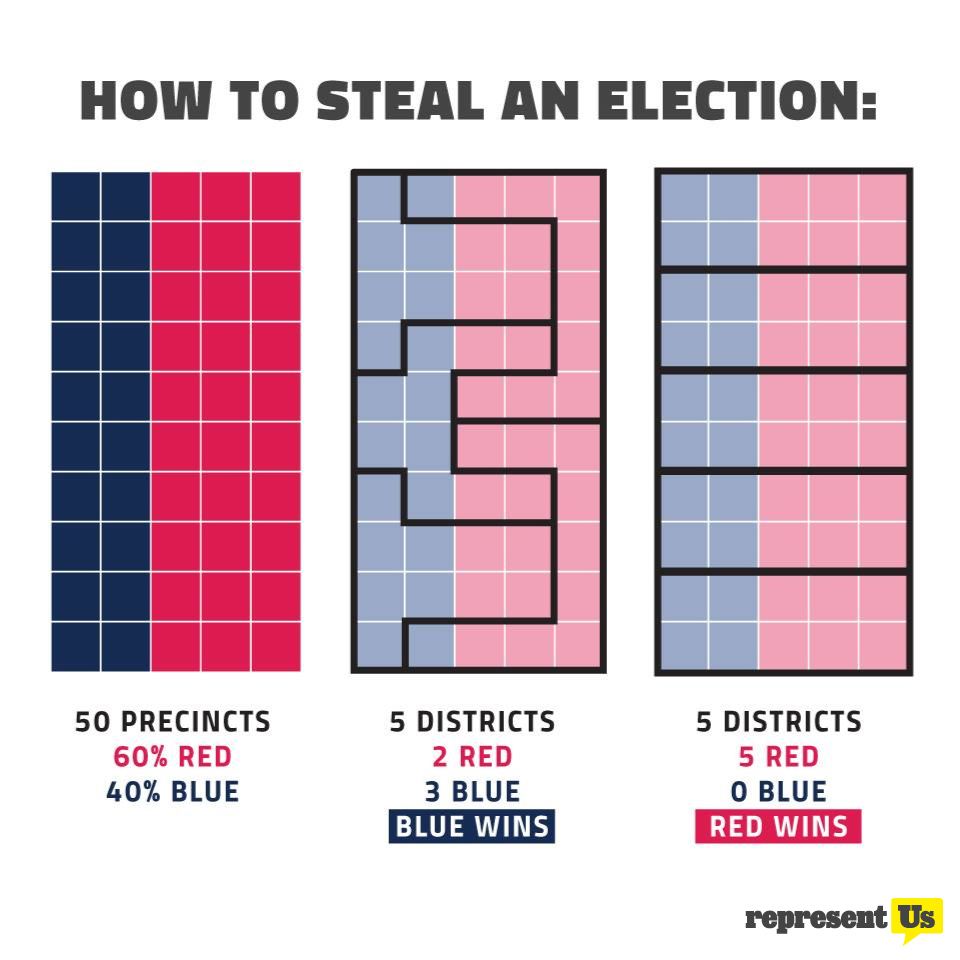- 14 3402-5578
- Rua Hygino Muzy Filho, 737, MARÍLIA - SP
- contato@latinoobservatory.org
 Wikimedia Commons/Steve Nass
Wikimedia Commons/Steve Nass
After Census 2020, there was a period when American states redraw their maps in Congress. There is an embracing process of discussions and legal battles across the country, since redistricting is a leveling factor for partisanship. By this method, the electoral districts are defined in terms of area and, thus, the possibility of increasing the number of elected political representatives is opened, which is a considerable advantage. It's a fact that since Republicans control more state legislatures, they can influence the redistricting process much more than Democrats.
Senate Democrats recently introduced a reform package that seeks to pass federal election reform legislation. The "Freedom to Vote Law" was submitted on September 14th, 2021 aimed at fighting not only the influence of money on politics but also the practice of gerrymandering. This maneuver means redesigning electoral districts to favor a particular party, diluting the demographic weight of a community in districts designed explicitly for this purpose. The law under discussion also seeks to eliminate undemocratic laws passed by legislatures in at least 17 states. In addition, this legislation would also establish nationwide voting standards to help neutralize state laws often aimed at harming historically underrepresented communities, including black communities, as well as low-income voters and people with disabilities. Some of these state laws facilitate fraud, as election officials and conspirators could sabotage legitimate election results. Therefore, the main objective of the new law would be to safeguard the fundamental elements of American democracy.
According to analysts at the Center for American Progress, there are anti-democratic specifics in the laws passed in four states – Arizona, Florida, Georgia, and Texas – making it impossible for thousands of people to vote. Thus, they agree that the proposed federal law could face state laws, combating political interference in elections. It would enable four essential actions: "1. set national standards to protect and expand the right to vote; 2. help protect the integrity of elections and make it more difficult for party authorities to subvert valid election results; 3. prohibit partisan gerrymandering; and, 4. authorize courts to invalidate overly partisan maps, a change urgently needed as many states have already begun their 10-year redistricting process."
Other important factors about the bill concern the
incisive provisions that protect the right to vote and electoral processes in
the country, such as these following actions:
Since several states are enacting undemocratic
laws, if the Senate gets approval of the "Freedom to Vote Law," it
will be an important measure to improve the democratic system and guarantee the
right to vote and electoral integrity, reduce external influences and
corruption, and prevent the practice of partisan gerrymandering, which has a
long history in US politics.
Source of information:











